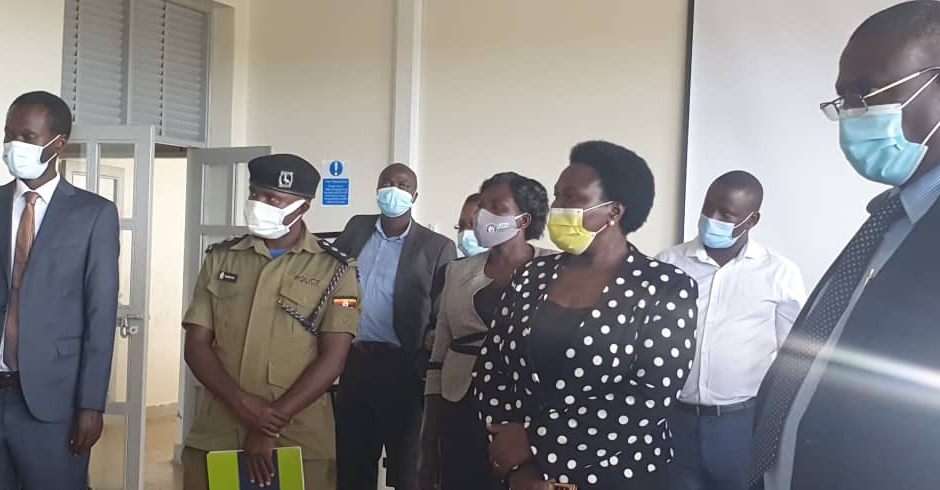3 days ago . 1 min Read The tour is part of her familiarisation visits of different sectors in her ministry
The Minister of Energy and Mineral Development, Ruth Nankabirwa, on Tuesday, toured the Uganda Petroleum Institute Kigumba (UPIK) in Masindi district.
The institute offers diploma and certificate courses in the field of petroleum management. The institute also offers international vocational qualifications in welding, fabrication and pipework.
Other courses include vocational qualifications in health, safety and management; upstream and downstream petroleum operation; as well as mechanical and electrical maintenance among others.
The tour is part of Naknabirwa’s familiarisation visits of different sectors in her ministry ever since she was appointed and sworn in as the energy minister.
On August 3, Nankabirwa met with industrialists to discuss among other things the high electricity tariff that is affecting their businesses.
Through their umbrella body, Uganda Manufacturers Association (UMA), the stakeholders held an engagement meeting with the government on how the electricity tariff for industrialists can be further reduced to leverage their businesses.
The meeting, which took place at Lugogo multi-purpose hall, was also discussing the government’s commitment to local content in electricity generation and transmission, as well as the renegotiation of the Umeme concession.
‘The energy ministry has the commitment to support local content. Therefore all construction from generation to transmission should be harnessed by local manufacturers with capacity,” Nankabirwa stated.
Last month, the Electricity Regulatory Authority (ERA) announced a reduction of power tariffs for July until September across different consumer categories.
Although the tariffs were reduced, industrialists still feel they are high compared to those in other countries within the region.ERA chief executive officer, Eng. Ziria Tibalwa Waako, in a statement, attributed the reduction to the consumer price index, the appreciation of Uganda shilling against the dollar by 3.3%, the fall in fuel prices that impact the cost of, especially thermal power generation.Domestic consumers will pay sh250 for the first 15 units under the lifeline tariff and thereafter, pay sh747.5 for the next units purchased, a reduction from sh750.9 in the previous quarter.The tariff for commercial industrialists reduced from sh639.8 to sh616, while that of medium consumers reduced from sh556 to sh526.9. For extra-large consumers, the tariff was reduced from sh301.7 to sh300.2 per unit.ERA said the move to reduce the tariffs was deliberate to support small and medium-size businesses to recover from the adverse effects of COVID-19.The reduced tariffs, ERA further explained, will apply to all electricity […]
